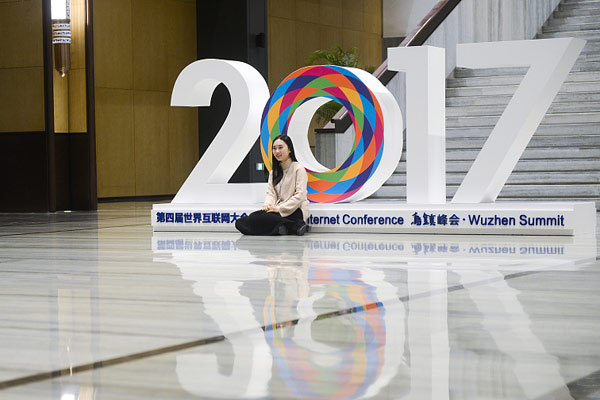Experts: Internet should unite, not divide, China, US
China and the United States should take measures to ensure that the internet unites rather than divides the two countries and refrain from "arms race" in the cyberspace, according to scholars and experts attending a forum during the 4th World Internet Conference.
"Beijing and Washington need to determine rules that allow for strengthening the bilateral relationship. Hence it's imperative that we make sure the internet serves the complimentary, rather than the conflicting, interests of both parties," said Stephen Orlins, president of the National Committee on US-China Relations.
"It is 'risky and even formidable' to throw the duo-the world's top two internet markets-on a competing trajectory on emerging technologies such as artificial intelligence," said Li Cheng, director of John L. Thornton China Center at the Brookings Institution. He said high-tech firms have taken on a more collaborative approach by investing in foreign markets and joined hands with fellow companies to carry out joint researches, all of which are solid examples of forging partnerships instead of embarking on zero-sum rivalry.Agreed Orlins, who cited the likes of Apple and Alibaba, whose cyber businesses transcend national borders and end up bringing the people of the two countries closer together.
"Today many people in the US get to know Jack Ma. When Americans see how the use of the internet can reduce frictions in commerce, they get to share a value that is not just the realization of the Chinese dream, but the American dream too," he said.
Meanwhile, governments should coordinate policies to respect each other's boundaries and core interests in the cyberspace, said Wang Yiwei, a professor of international relations at the Renmin University of China
"While freedom and security often contradict each other, an important premise is that security is based on a nation's sovereignty," Wang said. "If you cannot properly manage your own cyber territory, it's even difficult to construct a cyber community."His views were echoed by Li, who believed that security and liberty stand the best when they stand together.
"If we emphasize liberty too much, security would have to take the back seat."

















